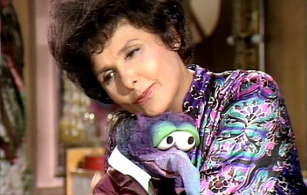Once again, I am left to wish that Henry Louis Gates covered people who are already dead. Because her mother was supposedly descended from John C. Calhoun. One great-grandparent on that same mother’s side was inventor Samuel L. Scottron, who held six patents mostly in the 1880s and ’90s; another was apparently a Senegalese slave whose name, Amelie Louise Ashton, is actually recorded. And, of course, there’s your standard claim of Native American descent. (Don Cheadle has ancestors who were actually owned by I believe it was Seminole, and even he doesn’t have Native American ancestry.) She’s got grandchildren who are in the entertainment industry; can we get them on the show?
Despite her illustrious ancestry, Horne’s own early life was not so auspicious. She said in her autobiography that, while she was being born, her father (a numbers kingpin) was in a card game, trying to earn enough money to pay for the birth. Her mother was a touring actress, and after her father left them, young Lena traveled some with her mother and lived with other relatives some. So okay, one of those relatives was Frank S. Horne, who would go on to be one of FDR’s advisors during his Presidency. It’s still an unsettled life.
And, yes, she is one of many performers of her era who dropped out of school to go on the stage. At least in her case it was out of love of performing, not a need to support anyone. She was one of the highlights of the Cotton Club. She had a knack for acquiring mentors; among people who took Lena under their various wings were Adelaide Hall, Duke Ellington, and Cab Calloway. Her longest-standing mentor, however, was Billy Strayhorn, whom she considered the love of her life. And who she said she would’ve married if he hadn’t, you know, been gay. It put a damper on things.
It says something that she and Hedy Lamarr both wore a makeup from Max Factor called “Dark Egyptian” to darken their light skin. Horne because MGM wanted to be absolutely sure audiences wouldn’t mistake her for a white woman—and Lamarr because she was playing a woman of mixed heritage for a movie. You know, because actually casting the light-skinned Horne would’ve been too easy. Indeed, most of her movie appearances were designed to be trimmed from their surrounding pictures because she was a beautiful, strong, independent—light-skinned—black woman, and white Southern audiences didn’t want to see that. Between that and the FDR-advising uncle, it’s no wonder she was so outspoken in her liberal politics!
And, yeah, I mostly think of her from various appearances with the Muppets. Ten episodes of Sesame Street between 1973 and 1996. Guest host of The Muppet Show in season one, the first black guest host. I think she’d probably agree that it’s because she simply wasn’t given the opportunities a white woman of her beauty and talent might have. To my understanding, no few of the white women she knew in Hollywood agreed with her about that. After all, she was never considered for the Ava Gardner role in Showboat and was denied the Jeanne Crain role in Pinky, both roles to which she was arguably far more suited than Gardner and Crain. She even resigned from the USO because they insisted audiences be segregated.
Help me pay for a babysitter to chase my kids around while I write; consider supporting my Patreon or Ko-fi!

